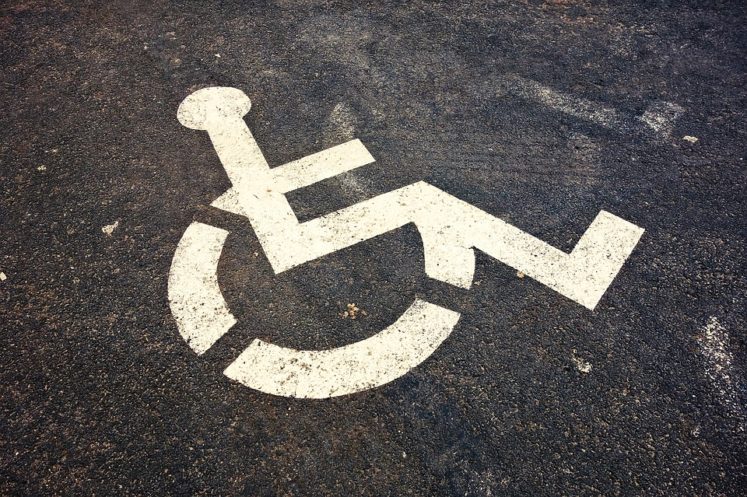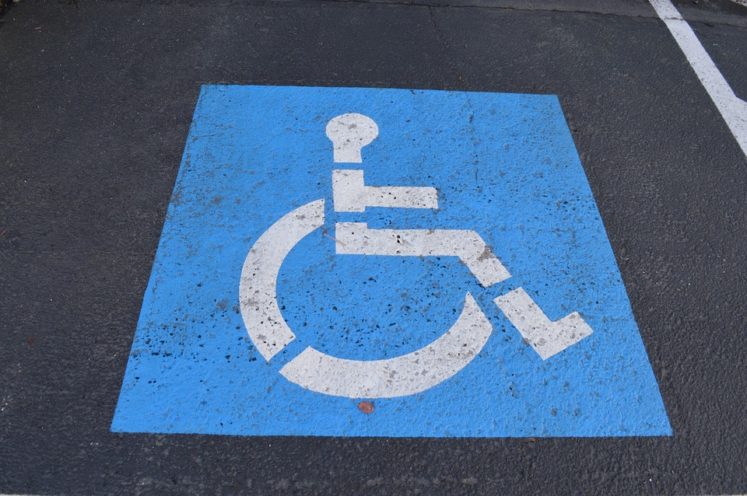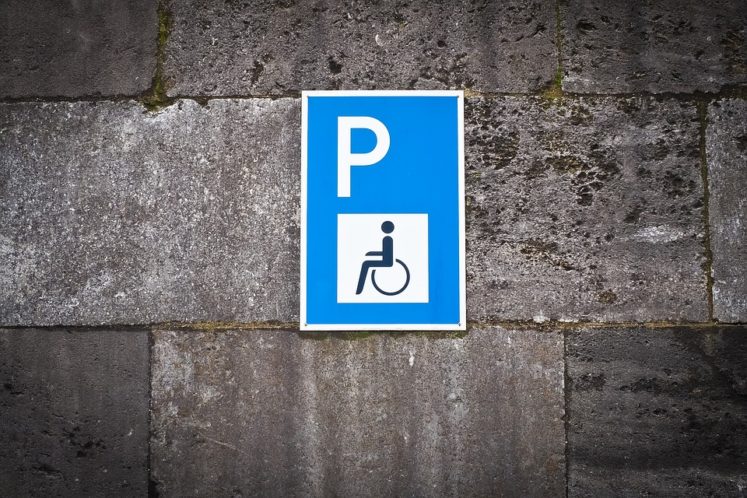Who Has Eligibility For A Disabled Parking Permit?

For most people, parking can be a bothersome chore, but it doesn’t really affect our lives too much. Sure, it can be annoying if we can’t find that space when we’re late for an appointment or a movie or a date; but it always works itself out and we get there in the end (usually running at high speeds from many blocks away). For some people, however, parking can be a genuine nightmare and a day-to-day struggle that they engage with on a regular basis. These people suffer from disabilities that prevent them from being able to move freely. Such people require the use of a handicap parking space – a common sight across every state in America, with the white-lined blue triangle signalling the designated spaces. However, it’s not simply a case of swinging into the premium spaces if you happen to be handicapped. In order to avail of one of these spaces, then you must have eligibility for a disabled parking permit issued by the state.
The restrictions on eligibility stem the tide of people who believe themselves to be handicapped (and will happily argue all day with anyone that takes issue with them using the space), reserving use of handicap parking spaces for people who genuinely are disabled. When we think of the term “disabled,” we instinctively think of someone confined to a wheelchair, or hobbling along on crutches. While these people are of course disabled, there are in truth many varied conditions which result in people losing mobility. These people are well within their right to avail of a handicap parking permit too. So with so much confusion surrounding the issue, let’s take a closer look at what exactly constitutes eligibility for a disabled parking permit.

Handicap parking permits are beneficial to disabled people in a number of ways. In an essential sense they give people the freedom to move around their town or city, without making every journey a logistical nightmare. They remove stress from what is undoubtedly a very stressful way of living, and in that sense, they’re a lifeline for the thousands upon thousands of handicapped people across America. A disabled parking permit can come in two forms: either a plastic tag, which is hung from the rear-view mirror, or special handicap license plates which are fixed to the back of the vehicle. Both forms display the International Symbol of Access (a wheelchair sign known as the ISA), recognized the world over as a disabled marker. Permits are issued by each state’s Department of Motor Vehicles, and many spaces include a wheelchair ramp next to the space to allow parkers easy access to their final destination.
Unfortunately, there is no federal law that governs the eligibility for a disabled parking permit, so qualifying conditions vary from state to state. The general criteria which governs most state’s decisions are based on the person’s ability to walk one hundred to two hundred yards without having to stop and take a rest. Other more specific qualifiers include the inability to walk without the aid of some device like a cane, wheelchair or prosthetic limb; diseases that restrict the use of the legs; advanced cardiac or lung disease; low vision or partial sightedness; the significant impairment of any limbs; arthritis; and any neurological impairment. Obesity is a common affliction affecting modern America, with percentages on the rise since the 80s. The most extreme form of obesity is morbid obesity, in which patients’ movements can be restricted by the sheer weight they have to manoeuvre around with them. In this sense, morbid obesity can be classified as a genuine disability, and those who suffer from the condition have eligibility for a disabled parking permit.

As well as the conditions that can be seen, there are also those that are invisible to the naked eye, but still constitute a disability in the eyes of the law. Despite this, these patient often face harassment from other citizens because they don’t appear to suffer from any condition at all. These “invisible” forms of disability are actually quite prevalent and include heart and lung conditions, neurological illness and tumours, seizure disorders, severe back injuries, cancer treatment, fibromyalgia, and a host of seizure disorders. Remember, just because the disability isn’t visible to the naked eye, that doesn’t mean it’s very real for the person suffering from it. The handicap parking permit, visible on the person’s vehicle, is all the proof that’s needed that the owner is a patient who genuinely suffers from a condition and benefits from the opportunities that having a handicap parking space affords.
If you’re unsure whether you or someone you love can benefit from a disabled parking permit, check with your primary care physician to see if one can help improve your situation. They will be able to inform you whether your condition qualifies you for a permit. Alternatively, if you can’t get to a doctor’s office or are worried that you won’t be able to complete the journey because of the lack of parking, head online to avail of one of the many telemedicine services that can deliver a handicap parking permit directly to your door.